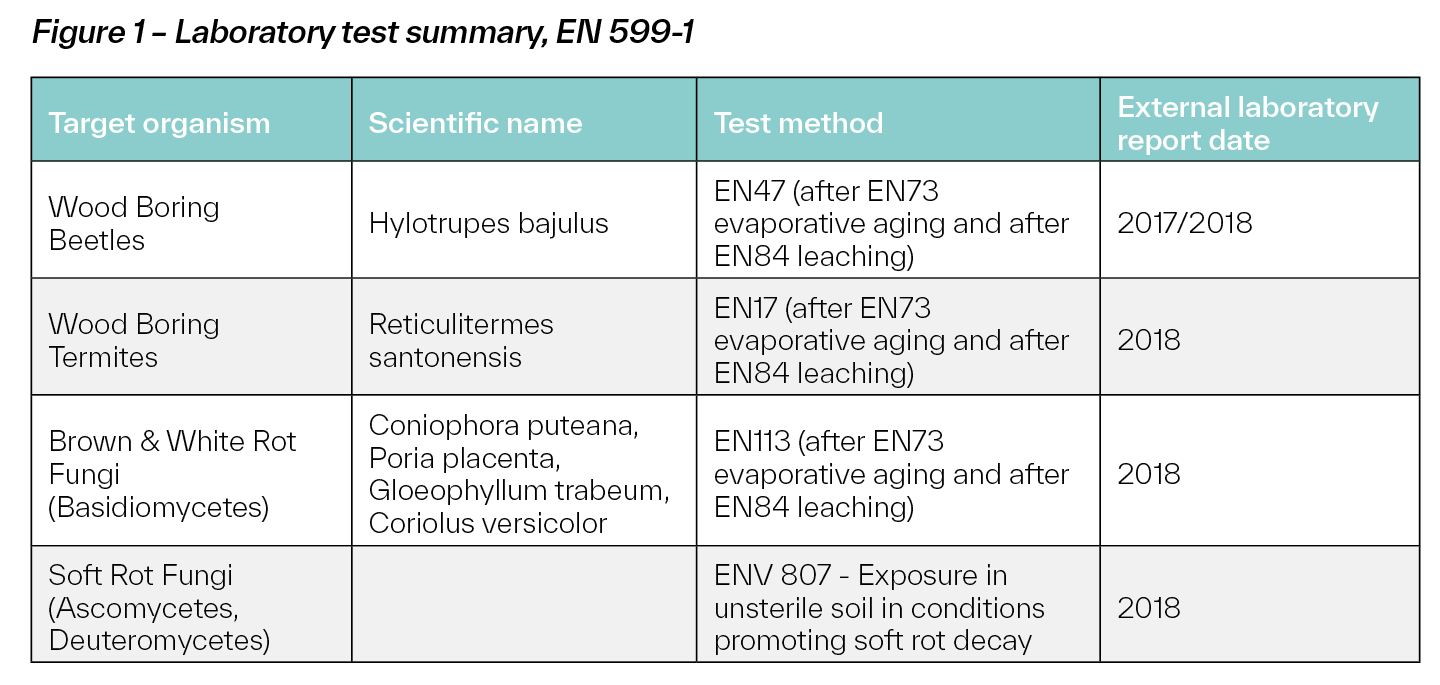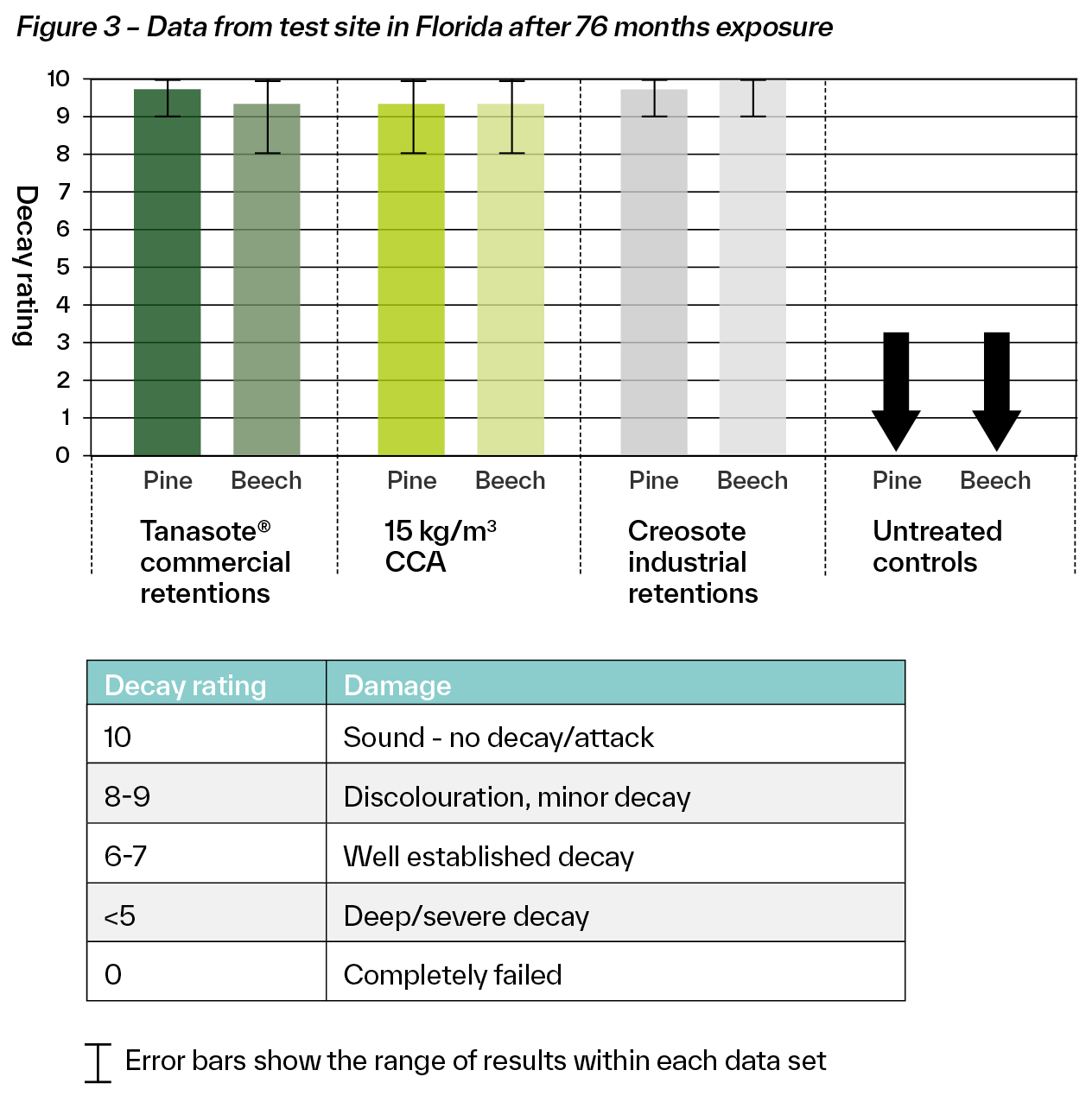Performance testing
The testing of wood preservatives is a well-documented procedure, covering both laboratory and field testing. In the development of new products across Europe and the UK, wood preservatives are commonly referenced against CCA and tested to EN 252 and EN 599-1:2009+A1:2013.
Whilst these EN Standards have played a significant part in the development of Tanasote®, they typically are used to predict a service life of between 15 to 30 years. For heavy duty timbers, it is imperative that a longer service life is provided, so as a business we have engaged in additional testing that goes above and beyond standard requirements.

Laboratory testing of wood preservatives
In accordance with EN599-1:2009 + A1:2013, the performance of wood preservatives is required to be tested against various decay organisms in independent external laboratory tests and assessed as part of the BPR authorisation. A summary of these are found below.

To demonstrate the robust performance of Tanasote® against aggressive non-standard strains of decay fungi, we engaged in additional, non-mandatory laboratory testing. One of the tests that we conducted was an adapted EN 113 study, which exposed timber treated with Tanasote® and untreated timber to the copper tolerant fungus Fibroporia (Antrodia) vaillantii.
In Figure 2, the untreated control shows >20% mass loss in this EN 113 laboratory study, where commercial retentions of Tanasote® show minimal mass loss against an aggressive/rogue strain of decay. As a very aggressive brown rot that often causes premature failure, this test shows how Tanasote® protects timber from premature failure.

Field testing of wood preservatives
EN 252 Field Testing of Tanasote® treated timber involved ground contact testing in various locations, with CCA and creosote used as reference preservatives. Installed in France, Germany, Denmark, Sweden, Guadeloupe and USA, Tanasote® treated wood shows no significant difference to CCA treated wood at 40-year retentions (15 kg/m³) and industrial retentions of creosote.
Data shown in Figure 3 is from a high humidity, aggressive field site in Florida after 76 months exposure.

In addition to the mandatory field tests, in the development of Tanasote® the Fahlstrom stake test method was adopted. The combination of a very small size and harsh conditions at the aggressive, high humidity field site in Florida, has enabled us to evaluate the long-term performance of Tanasote® treated timber compared with CCA as the reference preservative.
 Photograph above: Florida field test showing the Fahlstrom stake test method
Photograph above: Florida field test showing the Fahlstrom stake test methodIndependent review of performance data



